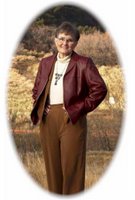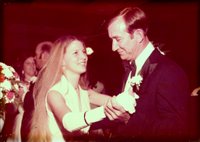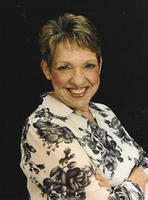
What kind of a reader are you? It's not the easiest thing in the world for a writer to think like a reader--although it's probably a safe conclusion that most writers are also avid readers. I'm one of those avid readers; nevertheless, I tend to think like a writer, no matter what I'm doing. I found this entry a challenge, because I really needed to shut down the writer in me to avoid interference.
Yesterday I talked about the responsibilities of the writer. At times, the responsibilities--and the expectations from which some of those responsibilities take root--almost seem to be too much. Yet in truth the entire burden of the reading experience isn't--or shouldn't be--solely that of the writer.
There are certain things a reader should, ideally, bring to a book. The word "responsibility" probably isn't a good word for what I mean here. I can only explain what I bring to a book, as a reader, certainly not what another reader is required to bring.
Most of us know that readers fall into different categories. Some read only as a last resort, when illness or extreme boredom might send them looking for something to pass the time. As soon as wellness returns or a more interesting activity presents itself, the book is put aside and forgotten.
Another group may read frequently, but read only for the purpose of escapism or entertainment. Often what they read--no matter how fine a work of literature it might be--is forgotten almost as soon as they close the book for the last time. They read much, but what they read has little, if any, effect on them, and that's why it's so easily dismissed from mind and memory.
To others, however, reading is a great love, a source of indescribable pleasure, an event, and they absorb what they read so deeply that in many cases it's never lost to them--and they're changed from the reading of it. Among this group you will usually find those who read their "favorites" again and again, and each time discover something new, something moving, something to remember. I belong to this group, as I suspect many of you do. But no matter which group may be the best fit for you, the important thing is to read.
C. S. Lewis compared the act of reading, to some extent, with that of the way one appreciates art: "Some buy pictures because the walls 'look so bare without them; and after the pictures have been in the house for a week they become practically invisible to them. But there are a few who feed on a great picture for years."
Two people (besides my favorite authors) heavily influenced my own attitude toward books and reading. One was an overworked and certainly underpaid elementary school teacher. I spent nearly two years as a shut-in before I was nine years old, unable to attend school, walk up the steps, go outdoors, or do anything else ... except read. Unfortunately, we lived in a very small town with no public library. But because the above-mentioned teacher saw to it that I received a fresh stash of books from the school library every week, a love affair with the story took root, one that I’ve never outgrown.
When she took it upon herself to supply me with a weekly bag of books, she apparently made the decision as well to provide me with the best books available for children, which often included a few meant for older readers. Because of her, I grew to be a hungry reader (which I still am today). I was also fortunate in that I cut my teeth on good books, in many cases the classics. To this day, I still remember waiting at the front window, heart pounding, scarcely able to control my excitement when I finally saw her drive up and step out of her car with the weekly supply of books. And also to this day, it takes a deliberate effort not to abandon everything else I need to be doing (including my WIP) and plunge into a new book.
It's not likely that this dear lady ever thought she might be planting seeds or bestowing a lifelong gift. I'm sure she merely meant to help an ill child survive the world of a shut-in--and keep me moving through my subjects so when the time came that I could return to school, I wouldn't be too far behind the other students. I wish somehow she could know the long-lasting fruit of her generosity and sacrifice.
I met the other "book lady" in my life during my early teens. She was an unlikely heroine; in fact, I was just a little afraid of her. A stern, elderly spinster lady partially crippled by arthritis, she needed some help on a weekly basis getting her groceries in and doing a few other chores. My mother volunteered me. Until the day I was sent upstairs to find a sweater "for the chill," I didn't know about her bookcases. Glass-enclosed bookcases on every wall, filled with old, well-cared for books. All novels.
All novels--except for one shelf, which held biographies. (My favorite books today are still novels and biographies.)
By the time I retrieved her sweater and made it downstairs, I was probably wild-eyed and tongue-tied. But I was able to voice my awestruck reaction to her book collection, and for the first time ever, after a long, piercing look, she smiled at me. To condense a very long story (and it's a colorful, rollicking good story, too), she became my own private lending library--and a benefactor of sorts. I was allowed to borrow one book at a time. I had to promise to handle it with the same care she had given it herself--and to read it from beginning to end, no skipping--and then to give her my opinion of the author and the story. Kind of like a book report without a grade. I learned a lot about books and authors during those "opinion sessions," even more about the woman who had opened her bookcases, and eventually her life, to me.
She had no family, no close friends, and was unable to leave the house. But she had a knife-sharp intellect and, I later discovered, a keen, if dry, sense of humor that often surprised me. It never occurred to me at the time, self-centered teenager that I was, that Miss Marian might be lonely, that she might be as hungry for human contact as I was for her books, that a weekly dialogue with a younger person might be as much gift to her as her books were to me.
Later, she gave me my first typewriter. A manual Underwood, on which she had once written her own "little stories" and correspondence, but which she'd grown unable to use in her later years because of the arthritis. After that, came a small desk--my first desk--which I kept until it literally fell apart and collapsed. It was a true "lady's desk"--even though in her youth she had painted it a blazing fire-engine red.
She's long gone, of course, but I tried to capture her spirit in one of my books. For those of you who have read
Cloth of Heaven, she's "Jane," Terese's employer in the Claddagh.
What did these two women teach me? How did they help to shape the kind of reader I became? What did they give me that I still bring with me to every book I read?
Respect. To approach a book as a caretaker of something precious. To approach it with high expectations, to choose only books worthy of those expectations, and to handle them with the greatest of care.
They also helped me to see that reading is in its own way a creative experience, not a sideline observance. When we read, we experience. We learn. We envision. We work through problems and fears and failures with the characters. In some cases, we become a little more than what we were before.
The act of sharing. As much as anything else, I suppose they taught me that books should never really belong to only one person, that the experience of reading is a gift, and a gift that by its very nature is an experience to be shared and passed on and made available to those who might otherwise never know what they're missing.
An inexplicable sense of reverence and the gift of remembrance. A good book is a treasure, one created by someone who cared enough to spend months, sometimes years, in the preparation and the crafting of it. Someone who likely loved what they did and did his best to express what he dreamed and imagined. A novel well-written opens a new world to the reader, offers an invitation to experience that world, to meet new people--some who will be unforgettable--and to undertake new adventures that may remain in memory for a lifetime.
Anticipation. I have never lost--and I hope I never lose--that sense of expectation when I first discover that I'm reading a
good book, a book that I'll almost certainly savor and take my time with and won't want to put down. It's that feeling that I've just been handed a gift, a cup of contentment.
Whatever I might bring to a book--a
good book--it will never be as much as I take from it. And that's what I would wish for every reader. Like you.
BJ Hoff is the author of the
American Anthem and
An Emerald Ballad.http://www.bjhoff.comhttp://www.bjhoffgracenotes.typepad.com




















